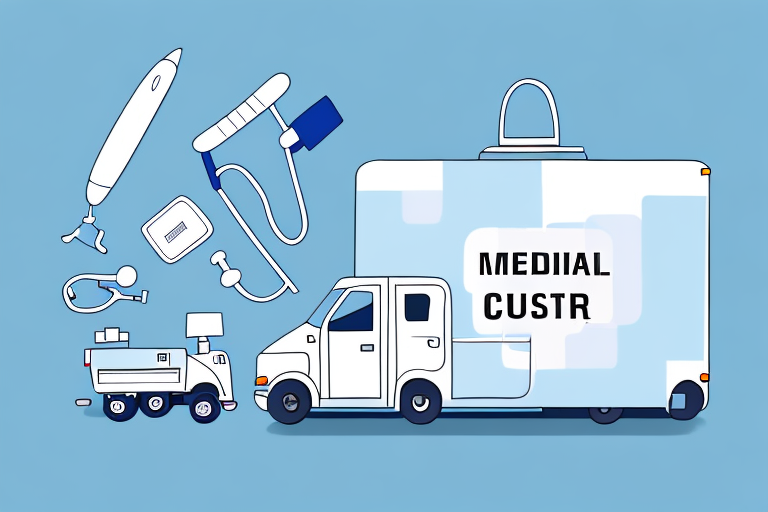Understanding Medical Courier Contracts
Medical courier services are integral to the healthcare industry, ensuring the timely and secure transportation of medical equipment, supplies, and sensitive documentation. Understanding the various types of medical courier contracts, their importance, and the key considerations for selecting a service provider is essential for healthcare organizations. Additionally, comprehending legal and regulatory requirements, best practices for contract negotiation, and managing common challenges are crucial for optimizing these services. This comprehensive guide explores these aspects and delves into future trends and the impact of technology on the medical courier industry.
Types of Medical Courier Contracts
Medical courier contracts vary to accommodate different needs within the healthcare sector. The primary types include:
- Same-Day Delivery: Ideal for urgent deliveries where time is critical, such as transporting medical specimens or time-sensitive medications.
- Scheduled or Routine Deliveries: Suitable for regular pickups and drop-offs of medical supplies, equipment, and documents, ensuring consistent and reliable service.
- On-Demand Services: Designed for emergency situations requiring immediate transport, providing flexibility and rapid response to unforeseen needs.
Importance of Medical Courier Services
Medical courier services play a pivotal role in the healthcare ecosystem by:
- Ensuring Timely Deliveries: Reliable transportation of supplies and equipment ensures that healthcare providers can maintain operations without delays.
- Maintaining Product Integrity: Specialized handling ensures that medical specimens and temperature-sensitive items remain viable for testing and treatment.
- Protecting Patient Confidentiality: Trained couriers uphold strict confidentiality standards, safeguarding sensitive patient information during transport.
- Reducing Healthcare Costs: Efficient routing and delivery optimization can lead to significant cost savings for healthcare institutions.
Choosing the Right Medical Courier Service Provider
Selecting a suitable medical courier service provider involves evaluating several critical factors:
- Experience and Reputation: Assess the provider’s track record and customer feedback to ensure reliability and professionalism.
- Fleet and Equipment Quality: Ensure the provider maintains a modern and well-maintained fleet equipped for handling medical items securely.
- Regulatory Compliance: Verify adherence to industry regulations, including HIPAA standards and transportation of hazardous materials.
- Insurance Coverage: Confirm adequate insurance to cover potential losses or damages during transit.
- Technology and Tracking Capabilities: Real-time tracking and advanced reporting tools enhance transparency and accountability.
- Customer Service: Responsive and effective communication is essential for addressing issues and ensuring seamless operations.
Legal and Regulatory Requirements
Medical courier contracts must comply with a range of legal and regulatory standards to ensure the safe and lawful transportation of medical items:
- HIPAA Compliance: Protecting the privacy and security of patient information is paramount.
- Transportation Regulations: Adherence to guidelines for transporting hazardous materials, including safe handling and proper documentation.
- Licensing and Insurance: Obtaining necessary permits and maintaining comprehensive insurance coverage to mitigate risks.
- Vehicle and Driver Standards: Ensuring vehicles are properly maintained and drivers are qualified and trained for medical transport tasks.
Best Practices for Negotiating Medical Courier Contracts
Effective negotiation of medical courier contracts involves establishing clear expectations and terms:
- Define Services: Clearly outline the scope of services, including pickup and delivery schedules, types of items transported, and handling procedures.
- Transparent Pricing: Ensure pricing structures are clear, including any additional fees for services like after-hours deliveries or fuel surcharges.
- Performance Metrics: Incorporate key performance indicators (KPIs) to monitor service effectiveness and reliability.
- Flexibility and Scalability: Negotiate terms that allow for adjustments based on changing needs and volumes.
- Service Level Agreements (SLAs): Establish SLAs to define the standards for service delivery and remedies for non-compliance.
Monitoring and Managing Medical Courier Services
Ongoing management and evaluation of medical courier services are essential to maintain high standards and efficiency:
Key Performance Indicators (KPIs)
- On-Time Delivery Rates: Measure the percentage of deliveries made within the agreed timeframe.
- Delivery Accuracy: Track the accuracy of deliveries to ensure correct items reach the intended destinations.
- Incident Rates: Monitor instances of damage, loss, or security breaches during transport.
Risk Management
- Insurance and Liability: Ensure comprehensive coverage to protect against potential losses.
- Security Protocols: Implement strict security measures to safeguard sensitive medical items and patient information.
- Compliance Audits: Regularly review and audit compliance with legal and regulatory requirements.
Addressing Common Challenges
- Specialized Equipment Needs: Invest in appropriate vehicles and handling equipment to maintain item integrity.
- Scheduling Flexibility: Develop systems to accommodate urgent and irregular delivery requests efficiently.
- Effective Communication: Maintain open lines of communication between all stakeholders to promptly address issues.
Future Trends and Innovations in Medical Courier Services
The medical courier industry is evolving with advancements in technology and innovative practices:
Technology Integration
- Advanced Tracking Systems: Enhanced real-time tracking improves transparency and accountability in deliveries.
- Automated Dispatching: Streamlined dispatch systems increase efficiency and reduce human error.
Emerging Transportation Methods
- Drones and Autonomous Vehicles: These technologies promise faster and more efficient delivery options, especially in remote areas.
- Temperature-Controlled Packaging: Innovations in packaging ensure that temperature-sensitive medical items remain stable during transit.
Case Studies: Successful Medical Courier Contracts
Real-world examples illustrate the benefits of well-managed medical courier contracts:
- Ohio Hospital: Implemented a same-day delivery service for medical specimens, reducing test result turnaround time from days to hours.
- Texas-Based Provider: Established an on-demand courier service, enabling hospitals to receive critical supplies and equipment instantly as needed.
Enhancing Medical Courier Contract Management
Effective contract management ensures ongoing reliability and efficiency of medical courier services:
- Clear Communication: Establish robust communication channels between healthcare providers and courier services.
- Regular Performance Reviews: Continuously assess service delivery against established KPIs to identify areas for improvement.
- Reputable Providers: Partner with experienced and trusted courier services to ensure high standards of operation.
In-House vs. Outsourced Medical Courier Services
Deciding between in-house and outsourced courier services depends on various factors:
- In-House Services: Offer greater control and customization but require significant investment in vehicles, equipment, and staffing.
- Outsourced Services: Provide cost savings and flexibility but may offer less direct control over delivery processes.
Healthcare organizations should weigh the pros and cons based on their specific needs, budget constraints, and operational requirements.
Conclusion
Medical courier contracts are vital for the seamless operation of healthcare services, ensuring that critical medical items are delivered promptly and securely. By understanding the types of contracts, evaluating service providers carefully, adhering to legal and regulatory standards, and leveraging best practices in contract negotiation and management, healthcare organizations can optimize their medical courier services. Embracing future trends and technological innovations will further enhance efficiency and reliability, ultimately contributing to better patient care and operational success.




















